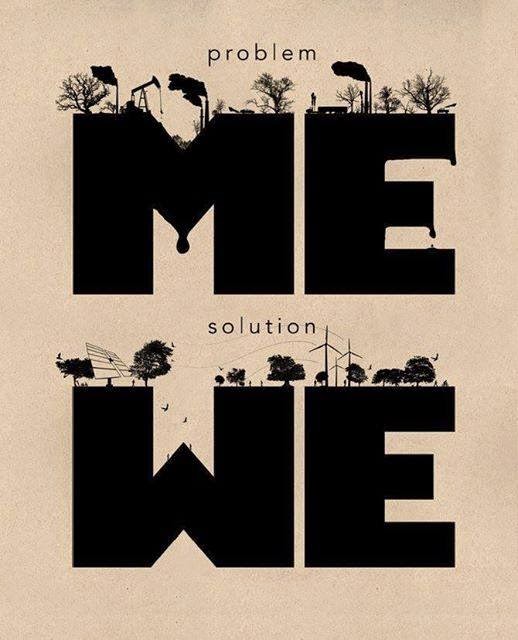In order to help fight the effects of climate change, members of the Norwegian army are reportedly forgoing meat once a week.
Military members stationed at the Rena military base ate a “meatless Monday” meal on Thursday. Meatless Mondays encourage the idea of eating meat once a week. The idea behind the army's plan was that if they cut down on meat consumption, they could cut down on greenhouse gas emissions and help protect the environment.
"Here’s the Norwegian army’s plan to fight climate change: have everybody go meatless once a week.
Norwegian troops will be eating vegetarian meals on Mondays to cut their “consumption of ecologically unfriendly foods whose production contributes heavily to global warming.” Spokesman Eystein Kvarving says that the plan is meant to be “a step to protect our climate” by serving food “that’s respectful of the environment.”
Norway’s 10,000 troops eat some 35,000 meals a day, so the army foregoing meat could put a bit of a dent in the country’s overall meat consumption. The army alone consumes about 150 tons of meat a year.
Meat is a staple of most Norwegians’ diet with the average Norwegian eating more than 1,200 animals over the course of their life including 1,147 chickens, 22 sheep, six cattle and 2.6 deer. A 2005 report (pdf) found that only 1 to 2 percent of Norwegians are vegetarian (though the number could actually be a bit higher according to other figures).
The new culinary regimen has already been implemented on Norway’s main bases and will soon be introduced to all units including those who are overseas; it is hoped that doing so will reduce meat consumption by 330,000 pounds a year.(Read more: http://www.care2.com/causes/norways-army-fights-climate-change-one-meatless-monday-at-a-time.html#ixzz2pdOFb3HM)
The Norwegian military said to The Atlantic they plan to expand the program to other bases, and they estimate they could cut meat consumption by 330,000 pounds if all their soldiers around the world participate in the program.
"It seems that people don't think it's possible to be an iron man as a vegetarian, it seems like they don't think a good soldier can be a vegetarian, but we have a lot of soldiers who are vegetarian, so I know it's possible," Pal Stenberg, a nutritionist and navy commander who heads up the army's catering division, told The Atlantic." We have to use a lot of effort in communicating both the environmental benefits and the health benefits.
"The United Nations said that livestock farming creates up to 7.1 gigatonnes ofcarbon dioxide equivalent per year, or about 14.5 percent of all human-based greenhouse gas emissions. Forty-five percent of the greenhouse gasses come from feed production and processing, 39 percent come from cow emissions and 10 percent comes from manure decomposition. The leftover emissions can be attributed to animal transportation and processing.
Stenberg added that many of the soldiers didn’t realize they were eating a vegetarian dish until journalists pointed it out them.
He also added that in order for the program to be successful, the army needs to get the soldiers to understand why being environmentally friendly is important.
“If we don’t the project will fail,” he said.
The Future in Our Hands, a Norwegian environmental group, applauded the military’s decision. The group estimated that the average Norwegian eats more than 1,200 animals over the course of their life, including 1,147 chickens, 22 sheep, six cattle and 2.6 deer during their lifetime.
"The defense ministry deserves a lot of praise because it's taking climate and environmental issues seriously," director Arild Hermstad said to AFP.
Another program the Norwegian army is testing out to be more environmentally friendly is to use 15 percent of the catering budget on organic items.
© 2013 CBS Interactive Inc.
"Andrea Bruer with the Oslo-based Norwegian Vegan Society points out that while Norwegians are becoming more aware of meat's harmful effects on the environment and climate issues more generally (the Norwegian Green Party won its first parliamentary seat this fall), a 2005 report found that only 1 to 2 percent of Norwegians are vegetarians (other studies suggest this figure may be slightly higher).
During a recent trip to neighboring Sweden, she notes, she found stores selling ready-to-eat vegan hot dogs. “Go across the border to Norway," she adds, "and there's lots of meat and potatoes staring you in the face.” According to the Norwegian environmental group The Future in Our Hands, the average Norwegian eats more than 1,200 animals in his or her lifetime, including 1,147 chickens, 22 sheep, six cattle, and 2.6 deer.
So, might the U.S. military, which isn't exactly known for catering to vegetarians, follow suit? Before we get ahead of ourselves, it's worth keeping in mind that Norwegian military officials aren't even sure their flirtation with vegetarianism will pan out.
"We need to get our soldiers to understand why they should eat more environmentally friendly," Stenberg says. "If we don't, the project will fail."" (http://www.theatlantic.com/international/archive/2013/11/the-norwegian-military-is-fighting-climate-change-with-meatless-mondays/281729/)

No comments:
Post a Comment